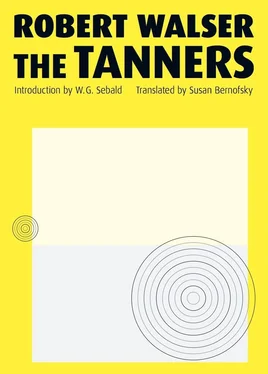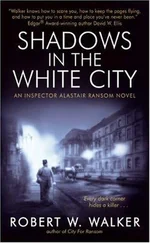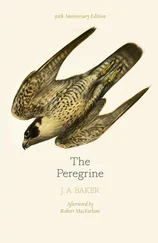Popping the money he’d received into his vest pocket, he walked over to the window and beheld, down below in the narrow alleyway, a woman dressed all in black who seemed to be looking for something, for she kept tilting her head to look up, and in one such moment her eyes met those of Simon. These were large, dark eyes, true female eyes, and Simon involuntarily thought of Klara, whom he hadn’t seen in such a long time now; indeed he’d almost forgotten her. But it wasn’t Klara. This beautiful creature in the deep alley with her elegant, opulent dress offered a strange contrast to the dismal filthy walls between which she was slowly walking. Simon would have liked to call out to her: “Is it you, Klara?” But already the figure was vanishing around a corner, and nothing of her remained in the alleyway except the faint scent of melancholy that beauty always leaves behind in dismal places. “How beautiful it would have been, and how fitting, just at the moment when she looked up, to have thrown her a large dark red rose that she would have bent down to pick up. She would have smiled at this, astonished to be met by such a friendly greeting in so squalid an alleyway. A rose would have suited her well, as a pleading, crying child suits its mother. But how would a person who’s just had to avail himself of others’ generosity come to be in possession of expensive roses, and how could it be foreseen that at precisely nine in the morning a beautiful female figure would pass through this alleyway — which is the darkest of all alleys — a woman who appears to be the most elegant creature I’ve ever set eyes on?”
He went on for quite some time daydreaming about this woman who’d reminded him so strangely of his forgotten, vanished Klara, then he left the room, raced down the stairs and through the streets, spent his day doing nothing, and then toward evening found himself in one of the outlying districts of this sprawling city. Here workers lived in relatively attractive tall apartment buildings; but when you looked at these buildings more closely, you were struck by a certain austere squalor creeping up the walls, peering out of the monotonous cold rectangles of the windows and even perching on rooftops. The landscape of woods and meadows that began here formed a strange contrast with the tall but shabby building blocks that more disfigured than graced the area. Beside them, several lovingly built, low old cottages could be seen nestled in the landscape like children in their mother’s warm lap. Here the land formed a forest-topped hill beneath which the train line ran through a tunnel, having just emerged from the jumble of buildings. Evening light fell on the meadows; standing here, one felt one was already in the country, that the city and all its hubbub had been left behind. Simon was not put off by the ugliness of the workers’ housing; to him the entire admixture of city and country presenting itself here in a strange, graceful tableau was beautiful. When he walked a bare stone street and felt the warm meadow close beside him, this struck him as most peculiar, and when immediately afterward he went striding between meadows upon a narrow, earthen path, what harm did it do to know this was actually municipal and not country soil? “The workers have it good here,” he thought: “through every one of their windows they have a green forest view, and when they sit on their small balconies, they enjoy a good, strong, spicy breeze and an entertaining panorama featuring hills and vineyards. Even if the new tall buildings are smothering the old ones and will eventually force them out altogether, you must nonetheless consider that the earth never stands still and that people must always remain in motion, even if it’s in what appears at present to be a less than charming form. An area is always beautiful because it always bears witness to the life present both in nature and architecture. To build a settlement in a pretty meadow and woodland region might seem at first somewhat barbaric, but in the end every eye will make its peace with the unification of building and world, finding all sorts of enchanting views to glimpse from between the new walls, and forget its irritably critical condemnation, which after all never gives rise to better things. We need not compare the old and new buildings like architectural scholars; we can take pleasure in both sorts, in both the modest and the vainglorious. When I see a building standing here, there’s no cause to think that if I find it insufficiently attractive I can just knock it down, for it stands rather firmly on its foundations, housing a great many sentient persons, and is therefore a respectable entity whose creation was the work of many diligent hands. Those who search for beauty must oftentimes feel that the mere search for beauty in this world gets you only so far, that there are other things worth finding besides the good fortune of being able to stand before a charming antique. The struggle of the poor for a bit of peace — I’m referring to the so-called Workers’ Question — is itself quite an interesting matter, so to speak, and must certainly engage a stalwart mind more than the question of whether a house is well or poorly situated in a landscape. What smooth-tongued idlers this world contains! To be sure: Every thinking head counts, and every question is priceless, but it’s surely more admirable and does more honor to our heads to address life questions first and more delicate artistic questions later. Of course questions of art are sometimes life questions as well, but life questions are questions of art in a far higher and nobler sense. Naturally I’m thinking this way now because the first question on my mind is how I shall go on existing, given that my sole employment is copying out addresses for paltry day-wages, and I cannot sympathize with the snobbery of art since at the moment it strikes me as the most irrelevant thing on earth; and indeed just consider, what is art compared with Nature, which dies and awakens over and over again? What means does art have when it wishes to portray a blossoming fragrant tree, or the face of a human being? I admit I’m musing somewhat insolently now, condescendingly — or rather furiously con- ascendingly , from down in the depths inhabited by people who have no money. The thing is, I’m critical but at the same time feel quite melancholy because of my lack of funds. I’ve got to get some money, it’s quite simple. Borrowed money isn’t money; money must be earned or stolen or received as a gift — and then there’s one thing more: evening! In the evening I’m generally tired and dispirited.”
As he was thinking in this way, he’d been walking up a short but fairly steep street and now paused before a building from which a woman’s head was looking out at him through an open window. Looking into the woman’s eyes, Simon thought he was gazing into a distant sunken world, but then a wonderfully familiar voice called down to him: “Oh, Simon, it’s you! Do come up!”
It was Klara Agappaia.
When he’d leapt up the stairs, he beheld her sitting at the window in a heavy dark red dress. Her arms and breast were only half concealed by the luxurious fabric. Her face had grown paler since he’d seen her last. In her eyes a deep fire was burning, but her mouth was pressed closed. She smiled and held out her hand to him. In her lap lay an open book, apparently a novel she’d started reading. At first she was unable to speak. It seemed to be causing her shame and effort to ask questions and relate things. She seemed to be struggling to shake off the sense of alienation she now felt before her young former friend. Her mouth appeared to weep each time it tried to open and soften. Her beautiful, long, voluptuous hands seemed to have taken over the task of speaking, at least until her mouth was able to shake off its self-consciousness. She didn’t look Simon up and down the way people examine friends they haven’t seen in a long while; instead she gazed into his eyes, whose peaceful expression calmed her. Once more she seized his hand and at last said:
Читать дальше












